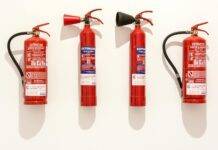
Chemical Safety Quiz: Test Your Knowledge About Handling Hazardous Substances
Chemical Safety Quiz : Chemical safety is of paramount importance across various industries and in our daily lives. To gauge your proficiency in handling hazardous substances, we’ve designed a comprehensive Chemical Safety Quiz. This quiz will not only test your knowledge but also provide insights into best practices for safe chemical handling. Let’s delve into the quiz and explore the essential aspects of chemical safety.
Introduction
Chemical safety is not a choice—it’s a responsibility that extends from industrial environments to our homes. While chemicals have significantly improved various aspects of modern life, they also pose inherent risks. This quiz aims to evaluate your understanding of chemical safety practices and equip you with the knowledge needed to mitigate these risks effectively.
The Significance of Chemical Safety
Chemical safety is crucial due to the potential dangers associated with mishandling hazardous substances. From corrosive liquids to toxic gases, chemicals demand careful management to prevent accidents, injuries, and environmental harm.
Understanding Hazardous Chemicals
Types of Hazardous Chemicals
Chemicals are categorized based on their potential risks, including flammability, toxicity, and reactivity. Recognizing these categories helps in determining appropriate handling and disposal methods.
Potential Health and Environmental Risks
Exposure to hazardous chemicals can lead to a range of health issues, from skin irritation to chronic respiratory problems. Moreover, improper disposal can pollute water bodies, soil, and the air, causing lasting environmental damage.
Safe Practices When Working with Chemicals
Utilizing Personal Protective Equipment (PPE)
Personal Protective Equipment, such as gloves, goggles, and masks, acts as a barrier between you and hazardous substances. Using the right PPE for specific chemicals is non-negotiable for safety.
Proper Storage and Clear Labeling
Chemicals must be stored in well-ventilated areas and labeled clearly to avoid mix-ups. Incompatible chemicals should be stored separately to prevent reactions.
Emergency Response Procedures
In the event of spills or leaks, knowing the correct response is vital. This includes containing the spill, evacuating the area if necessary, and following established emergency protocols.
Common Mistakes in Chemical Handling
Ignoring Label Instructions
Labels on chemical containers provide crucial information about their properties and safe handling guidelines. Neglecting these instructions can lead to accidents.
Mixing Incompatible Chemicals
Some chemicals react violently when mixed. Failing to check compatibility before combining substances can result in hazardous reactions.
Inadequate Ventilation
Proper ventilation is essential to prevent the accumulation of fumes and gases that could pose health risks. Working in well-ventilated areas reduces exposure.
The Role of Training and Education
Importance of Proper Training
Proper training is a cornerstone of chemical safety. It empowers individuals with the knowledge needed to handle chemicals safely and respond effectively in emergencies.
Resources for Chemical Safety Education
Online courses, workshops, and guidelines from regulatory agencies offer valuable insights into chemical safety best practices. Staying informed is key.
Chemical Safety in Household Settings
Secure Handling of Household Chemicals
Household cleaning products often contain chemicals that can be harmful if misused. Following usage instructions and wearing appropriate protection is essential.
Childproofing and Storage Measures
To protect children and pets, store household chemicals out of their reach and in childproof containers. Locking cabinets provide an added layer of safety.
Enhancing Safety in Laboratory Environments
Containment and Ventilation Strategies
Laboratories handle a diverse range of chemicals. Using containment measures and ensuring proper ventilation minimizes the risk of exposure.
Maintenance of Laboratory Equipment
Regular inspection and maintenance of lab equipment prevent leaks and malfunctions that could lead to accidents.
Industrial Chemical Safety
Risk Assessment and Management
Industries dealing with chemicals must conduct thorough risk assessments. Implementing safety measures and protocols mitigates potential hazards.
Compliance with Worker Safety Regulations
Industrial settings are governed by worker safety regulations. Adherence to these regulations safeguards employees and prevents accidents.
Dealing with Chemical Emergencies
Steps to Address Spills and Leaks
Quick and effective response to chemical spills prevents their spread. Using appropriate absorbent materials and protective gear is essential.
Immediate First Aid Procedures
Knowing basic first aid measures can make a significant difference in case of chemical exposure. Washing affected areas and seeking medical attention is vital.
Environmental Impact of Chemical Mishandling
Contamination of Water and Soil
Chemicals that infiltrate water bodies and soil can have far-reaching ecological consequences. Proper disposal and spill prevention are crucial.
Air Quality Implications
Gaseous chemicals released into the air can harm air quality and pose health risks to humans and wildlife alike.
Regular Inspections and Safety Audits
The Importance of Routine Checks
Regular inspections ensure that safety protocols are maintained and that potential hazards are promptly addressed.
Implementing Corrective Actions
Identifying areas for improvement and implementing corrective actions prevent recurring safety issues.
Staying Informed: Evolving Chemical Safety
Technological Advances in Safety Measures
As technology advances, new safety measures and equipment emerge. Staying updated ensures the adoption of the latest safeguards.
Adapting to Regulatory Changes
Regulations evolve to reflect emerging risks and knowledge. Adapting to these changes ensures continued compliance and safety.
Cultivating a Culture of Safety
Effective Communication and Reporting
Encouraging open communication about safety concerns and incidents promotes a culture of safety.
Recognizing and Rewarding Safe Practices
Acknowledging and rewarding individuals who consistently adhere to safety protocols fosters a sense of responsibility and accountability.
Chemical Safety Quiz: Multiple-choice questions along with their answers
Question 1: What is the primary purpose of chemical safety? a) To increase chemical production b) To reduce the cost of chemicals c) To minimize the risks associated with handling hazardous chemicals d) To promote chemical experimentation
Answer: c) To minimize the risks associated with handling hazardous chemicals
Question 2: Which of the following is NOT a potential risk associated with exposure to hazardous chemicals? a) Skin irritation b) Improved respiratory health c) Chronic health issues d) Environmental contamination
Answer: b) Improved respiratory health
Question 3: What does PPE stand for in chemical safety? a) Personal Preparation Equipment b) Public Protection Equipment c) Personal Protective Equipment d) Primary Prevention Equipment
Answer: c) Personal Protective Equipment
Question 4: Why is proper storage important when working with chemicals? a) It saves space in the storage area b) It prevents chemical reactions and accidents c) It reduces the need for labeling chemicals d) It makes chemicals more accessible for everyone
Answer: b) It prevents chemical reactions and accidents
Question 5: What is the purpose of clear labeling on chemical containers? a) To make the containers look more organized b) To provide a colorful appearance to the containers c) To help identify chemicals and provide safe handling instructions d) To make the containers more visually appealing
Answer: c) To help identify chemicals and provide safe handling instructions
Fire Safety Quiz Questions Answers
Question 6: What should you do in case of a chemical spill? a) Ignore it and continue working b) Document it for future reference c) Contain the spill using appropriate materials and follow safety guidelines d) Panic and leave the area immediately
Answer: c) Contain the spill using appropriate materials and follow safety guidelines
Question 7: Why is proper ventilation important when working with chemicals? a) It makes the environment more comfortable b) It prevents chemical spills c) It improves the smell of the chemicals d) It helps to disperse harmful fumes and gases
Answer: d) It helps to disperse harmful fumes and gases
Question 8: What is the role of training in chemical safety? a) It is not necessary for chemical safety b) It empowers individuals with knowledge for safe chemical handling c) It makes chemicals less hazardous d) It helps reduce the cost of chemicals
Answer: b) It empowers individuals with knowledge for safe chemical handling
Question 9: Where can you find resources for chemical safety education? a) Only in academic textbooks b) Through regulatory agencies, online courses, and workshops c) Only from chemical manufacturers d) By watching fictional movies and TV shows
Answer: b) Through regulatory agencies, online courses, and workshops
Question 10: What is the main goal of chemical safety in household settings? a) To keep chemicals hidden from view b) To maximize chemical usage c) To prevent children from handling chemicals d) To ensure safe handling and storage of household chemicals
Answer: d) To ensure safe handling and storage of household chemicals
Question 11: Which of the following is a potential risk associated with mishandling hazardous chemicals? a) Increased energy efficiency b) Enhanced mental alertness c) Skin irritation and burns d) Improved digestion
Answer: c) Skin irritation and burns
Question 12: What should you do before mixing different chemicals together? a) Mix them without checking b) Consult with a friend c) Check for compatibility to prevent reactions d) Close your eyes and proceed
Answer: c) Check for compatibility to prevent reactions
Question 13: What is the primary purpose of personal protective equipment (PPE) when working with chemicals? a) To look professional b) To keep you warm c) To protect you from chemical hazards d) To make you more comfortable
Answer: c) To protect you from chemical hazards
Question 14: What is the recommended approach in case of a chemical spill that poses immediate danger? a) Ignore the spill and continue working b) Wait for someone else to clean it up c) Evacuate the area and seek professional assistance d) Cover the spill with a cloth
Answer: c) Evacuate the area and seek professional assistance
Question 15: How can you minimize the environmental impact of chemical mishandling? a) By pouring chemicals down the drain b) By disposing of chemicals in the trash c) By following proper disposal guidelines and preventing spills d) By using chemicals without any concern for the environment
Answer: c) By following proper disposal guidelines and preventing spills
Question 16: What should be the goal of regular inspections and safety audits? a) To find ways to cut corners and save time b) To identify potential safety hazards and address them c) To increase the number of chemicals used d) To avoid using personal protective equipment
Answer: b) To identify potential safety hazards and address them
Question 17: How can technology contribute to chemical safety? a) By increasing the risks associated with chemical handling b) By providing new ways to mix chemicals c) By introducing advanced safety measures and equipment d) By making chemicals more colorful and appealing
Answer: c) By introducing advanced safety measures and equipment
Question 18: Why is adapting to regulatory changes important in chemical safety? a) It’s unnecessary and doesn’t impact safety b) Regulations are always the same and never change c) It ensures compliance with evolving safety standards d) It’s only important for professionals, not individuals
Answer: c) It ensures compliance with evolving safety standards
Question 19: How can you promote a culture of safety in a workplace? a) By ignoring safety concerns b) By rewarding risky behaviors c) By communicating openly about safety and recognizing safe practices d) By making fun of safety guidelines
Answer: c) By communicating openly about safety and recognizing safe practices
Question 20: Why is chemical safety important for both individuals and the environment? a) It isn’t important; chemicals are harmless b) Chemical safety only benefits individuals c) Chemical safety prevents accidents, protects health, and preserves the environment d) Chemical safety only benefits the environment
Answer: c) Chemical safety prevents accidents, protects health, and preserves the environment
Conclusion
Chemical safety is a shared commitment that extends across all aspects of life. Whether at home, in laboratories, or industrial settings, practicing proper chemical handling is essential for safeguarding ourselves, our communities, and the environment. By staying informed, adopting best practices, and nurturing a culture of safety, we can collectively ensure a safer and healthier world.
FAQs
- What is chemical safety? Chemical safety refers to the practices and precautions taken to handle hazardous chemicals in a way that minimizes the risk of harm to individuals, communities, and the environment.
- Why is proper storage important when working with chemicals? Proper storage prevents chemical reactions, spills, and accidents. It also ensures that chemicals are easily accessible when needed.
- What personal protective equipment (PPE) should be used when handling chemicals? Depending on the chemicals being used, PPE may include gloves, goggles, lab coats, respirators, and other specialized gear.
- How can I learn more about chemical safety? You can take online courses, attend workshops, and refer to resources provided by regulatory agencies and safety organizations.
- What should I do in case of a chemical spill? In case of a small spill, contain it using appropriate materials and clean it up following safety guidelines. For larger spills, evacuate the area and seek professional assistance.

























sir you not NFPA DIMOND.
?